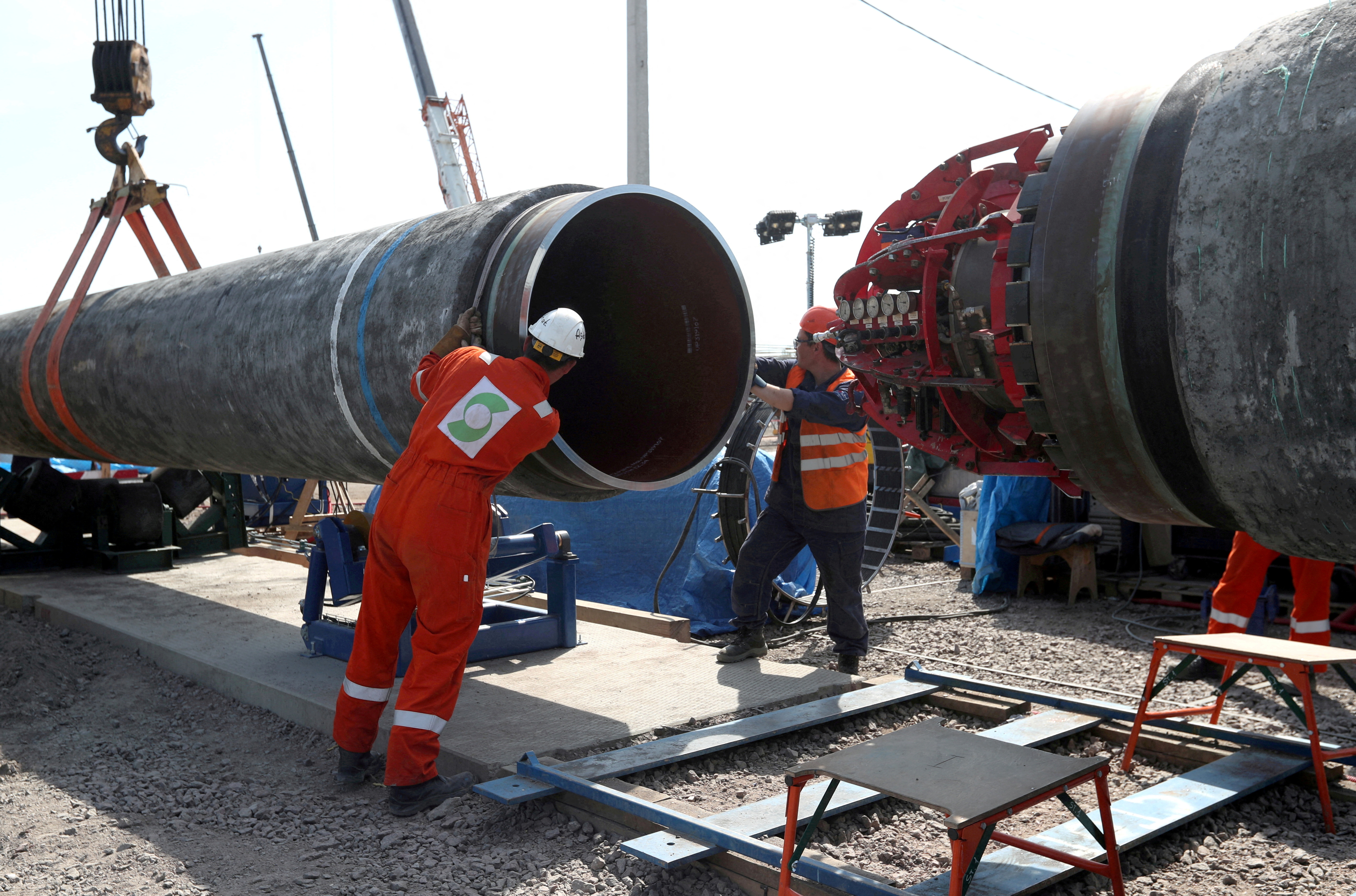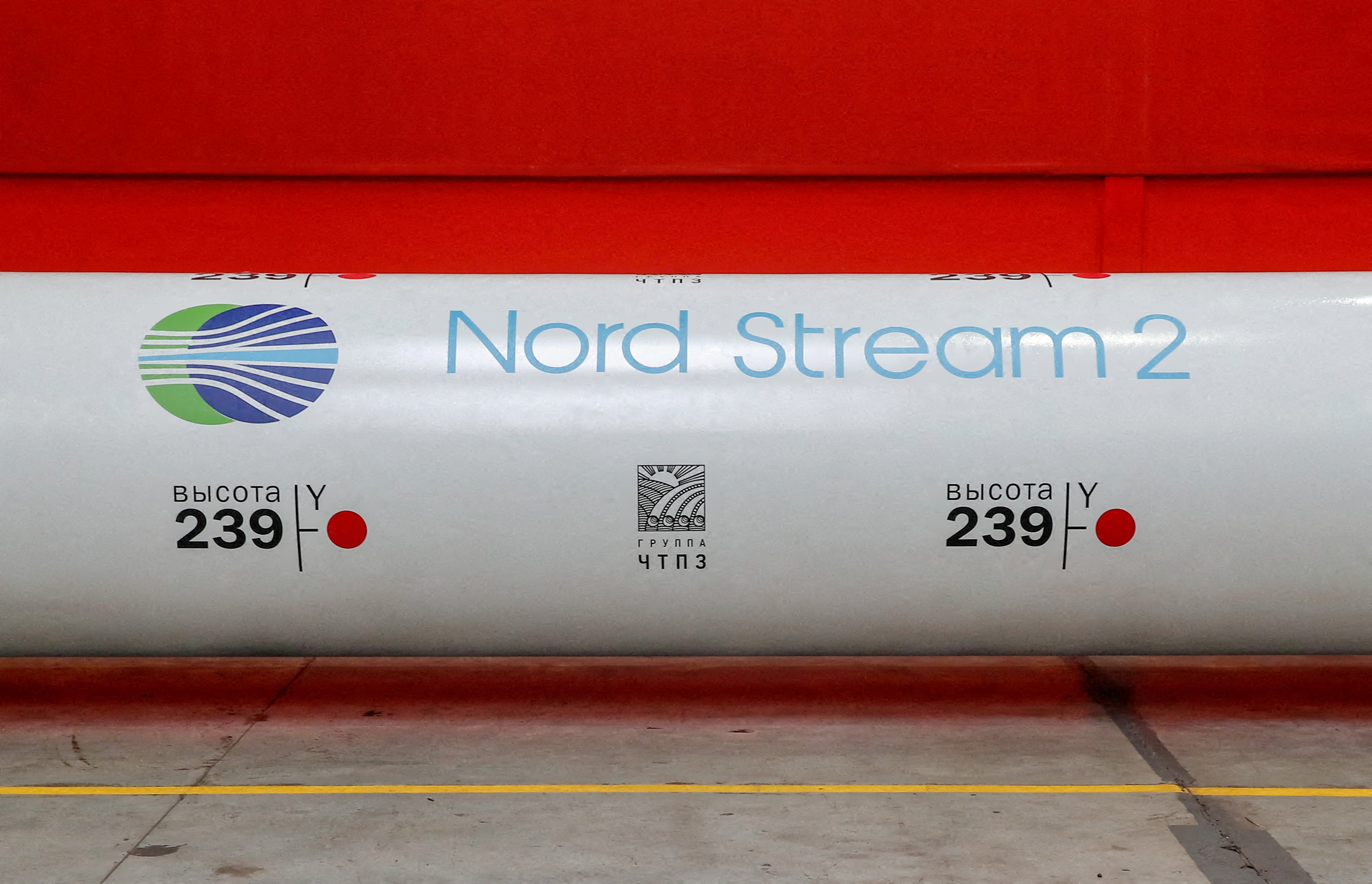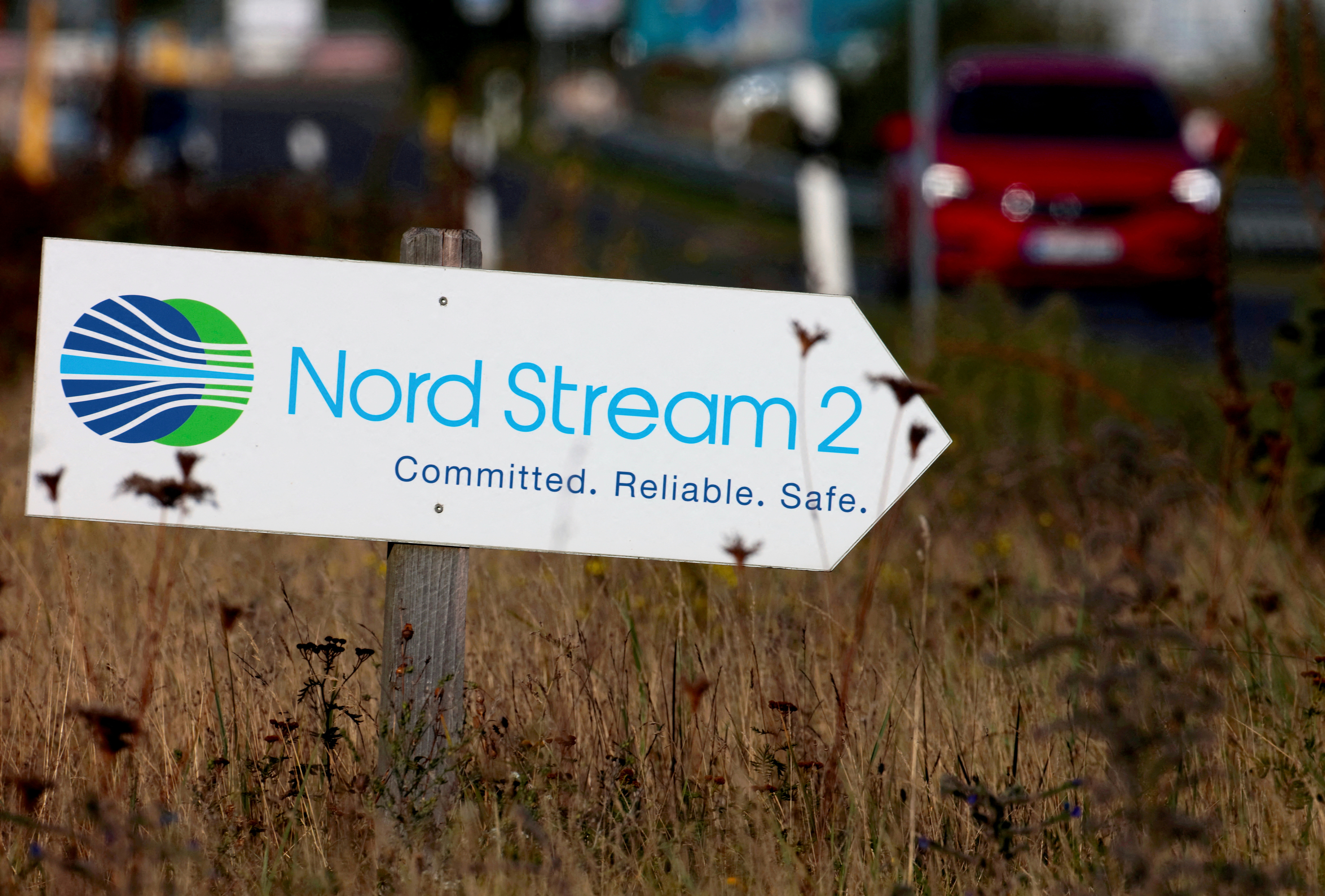After Russia formally recognized two rebel territories in eastern Ukraine, Germany stopped the Nord Stream 2 Baltic Sea gas pipeline project, which was designed to expand the flow of Russian gas straight to Germany.
The most disputed energy project in Europe, at $11 billion, was finished in September but is now awaiting German and European Union approval.

The pipeline was designed to ease pressure on European consumers, who are facing record energy bills as part of a larger post-pandemic cost-of-living crisis, and governments, who have already spent billions to offset the impact on consumers.
However, at 1607 GMT on Tuesday, the European average gas price, presently the Dutch March contract, was up 9.8% at 78.95 euros per megawatt-hour (MWh), similar to the price for the fourth quarter, when Nord Stream 2 was set to commence.

Russia’s former president and current deputy head of the Security Council, Dmitry Medvedev, attempted to add salt to the wound.
The Kremlin thought the Nord Stream 2 delay would be just temporary, according to Kremlin spokesperson Dmitry Peskov.
Germany imports half of its gas from Russia and has maintained that Nord Stream 2 is largely a commercial project to diversify Europe’s energy sources.
Despite the potential benefits, the European Union and the United States opposed the pipeline, claiming that it would increase Europe’s energy dependence on Russia while also denying transit fees to Ukraine, which hosts another Russian gas pipeline, making the country more vulnerable to the Russian invasion.
“This is a huge change for German foreign policy with massive implications for energy security and Berlin’s broader position towards Moscow,” said Marcel Dirsus, a non-resident fellow at Kiel University’s Institute for Security Policy.
“It suggests that Germany is actually serious about imposing tough costs on Russia.”
Dmytro Kuleba, Ukraine’s foreign minister, also tweeted his agreement.

“This is a morally, politically, and practically correct step in the current circumstances,” he said. “True leadership means tough decisions in difficult times. Germany’s move proves just that.”
Chancellor Olaf Scholz of Germany said he urged the economy ministry to ensure that certification could not occur right now.
“The appropriate departments will make a new assessment of the security of our supply in light of what has changed in the last few days,” he said.
Germany’s gas supply, according to Economy Minister Robert Habeck, is safe even without Nord Stream 2. However, he warned that costs were expected to climb higher soon.
The Russian state-owned gas company Gazprom controls the whole pipeline. Still, it only pays half of the expenditures, with the remainder split between Shell, Austria’s OMV, France’s Engie, and Germany’s Uniper and Wintershall DEA.
OMV claimed that it does not foresee the need for Nord Stream 2 write-downs at this time and that it has already begun to see a return on its investment.

The Federal Network Agency suspended the certification process in November, which regulates Germany’s energy, gas, telecommunications, postal, and railway sectors. Instead, the agency stated that Nord Stream 2 must register as a legal entity in Germany.
According to experts, if the operator complies with the request, the procedure is expected to restart around the middle of the year.


